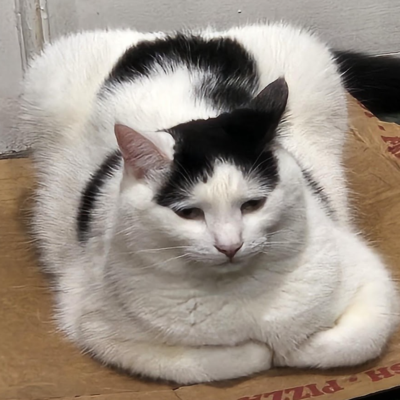Smart & 18: How Gifted Kid Discourse Reveals Flaws in Education
It’s hard to be smart and 18. Because when you’re smart and 18, you don’t get to be anything else. You don’t get to be fun, or pretty, or kind. You may get called these things, but every one comment on how nice your outfit is comes with three requests for you to help with homework. You’re expected to be valedictorian but never prom queen. And maybe it sounds stupid and bratty to complain about being considered valedictorian material, and you’ll tell yourself that too, and you can’t put into words how guilty you feel. But then you’ll find out that you’re number 2 in your class and the people you tell will forget to congratulate you because they’re too busy wondering why you aren’t number 1. Then you’ll realize that even the nicest expectations are the most painful thing in the world.
It’s hard to be smart and 18. Because when you’re smart and 18, you get told to aim higher. It doesn’t matter that you’re applying early to your dream school, with the community you’ve always wanted to belong to in the cutest town you’ve ever seen. You’re too smart to care about aesthetics or the people you’ll be around for the next four years. You’re wasting your potential. Do you know how many people wish they could have your grades, your resume, your test scores? Don’t you see that you’re wasting your intelligence, your ambition? You can’t want anything but an Ivy because someone with a lower GPA wants an Ivy and teenagers aren’t allowed to be anything but the person they perform for six hours a day.
It’s hard to be smart and 18. Because when you’re smart and 18, you aren’t allowed to have feelings. You tell yourself not to cry over breakups because girls like you are too smart to get their hearts broken. You say it doesn’t matter if you don’t have very many good friends because the good friends will come later, in college, the godsend that you’ve made it out to be. And god forbid you have feelings about school. Whatever grade you have, someone got lower so you can’t be upset. If you have a test coming up, you don’t get to be stressed about it because “you always do good.” Maybe you’ve gotten to a point where a 85 in chem is cause for celebration and maybe you’ve collected a couple dozen C-minuses and Ds over the years, but that doesn’t matter. Your entire academic persona is wrapped up in a 4-point-whatever, so obviously you’ll do perfectly with every assignment for the rest of your life.
It’s hard to be smart and 18. Because when you’re smart and 18, you stop being 18. You become an old soul, “mature for your age,” a mini teacher. Nevermind that you send your best friend voice notes squealing over Olivia Rodrigo songs or that the majority of your budget goes to clothes. You’re ready for college, ready for grad school, ready to stop being a teen. You can explain things to the kids who sit next to you in math like you got the lesson four years before they did and leave feedback on your friend’s college essay until her advisor doesn’t have anything to add. Of course you’re not 18. Because everyone around you is 18 and you have to be more than everyone around you.
It’s hard to be smart and 18. Because when you’re smart and 18, you aren’t really smart. Or at least, no one really knows that you are. They know that you have good grades and you work fast and, when you’re 18, that’s all that matters. You’re not smart because you can create vivid scenes in fictional worlds or because you have a deep love for Erving Goffman and his contributions to sociology. You might be smart when you learn to recite Goffman’s theories or analyze a fictional world in an essay, but your smartness doesn’t depend on those tasks being done with any type of excitement. Someday you might get to be smart with your own words and the passion that got them on the page, but, when you’re 18, you’re only smart if you can memorize and vaguely apply the things other people have said. Who cares what you’d come up with if you had more time to dream?
I’ve spent enough time on TikTok to know how annoying gifted kid discourse can get and I know that we don’t have it the hardest. There are, like, 30 different privileges at play that allow me and other burnt out perfectionists to complain about the pressure that comes from being good at school. There are people in the world who struggle with social situations, or who’ve been parentified, or who get shoved into unfair boxes that haven’t experienced the fun adrenaline rush of compliments from a teacher whenever an essay is handed back. And that sucks. But the problems I’ve described, the reasons it’s hard to be “smart” and 18, aren’t actually exclusive to smart 18-year-olds. They apply to anyone who’s gone through school, anyone who’s been made to feel that grades define them even when they know they shouldn’t. It’s just really easy to think grades define you when you’re told they’re the best thing about you.
While it’s unclear how accepted it is in academia, the idea of different learning styles has become increasingly popular in conversations around education, with many more progressive educators arguing in favor of teaching in a variety of ways so different styles can all be met. The education system in America is considered uniform and many believe that this is doing a disservice to students. What teachers and educational theorists seem to have a harder time accepting is that there are some students who just don’t know or care about what’s being taught to them. But this interest and passion can be just as important as someone’s learning style when it comes to “succeeding” in a class. You can learn something in eight different ways and still never see the value in writing a five-paragraph essay about it. Does that really say anything about intelligence?
I’m someone who likes to get things done, so if I’m in a room where a lesson is being taught and work is being given out, I’m gonna learn and do it- no questions asked. That doesn’t make me inherently smart. Some kids get forced into a class because it’s the only thing that fits on their schedule so they only complete half their assignments and do the bare minimum to pass. That doesn’t make them inherently dumb. And all the kids in the middle – those who try their best but aren’t being taught in a useful way and those who don’t care about the class but still want to put in the work for their GPA – aren’t inherently anything either.
The smartest thing you can do is find out what makes you happy and invest in that. It’s smart to learn, to explore your passions, and do the things that you know will better your life. There’s no grade or class rank that can reflect that.
It’s hard to be 18, whether or not you’re “smart.” But there are people in the world trying to make it easier. There are people like my tenth grade English teacher, who will give you an assignment she gave her senior classes, not because she saw your high grades but because she knows how happy you feel when you get to push yourself in your writing. There are people like my African American Studies teacher, who will let his class turn into a discussion about the impact of white feminism in the 21st century because he knows his lessons go best when students feel connected to them. There are people who can see students as people and they make the hard task of being smart and 18 bearable.










